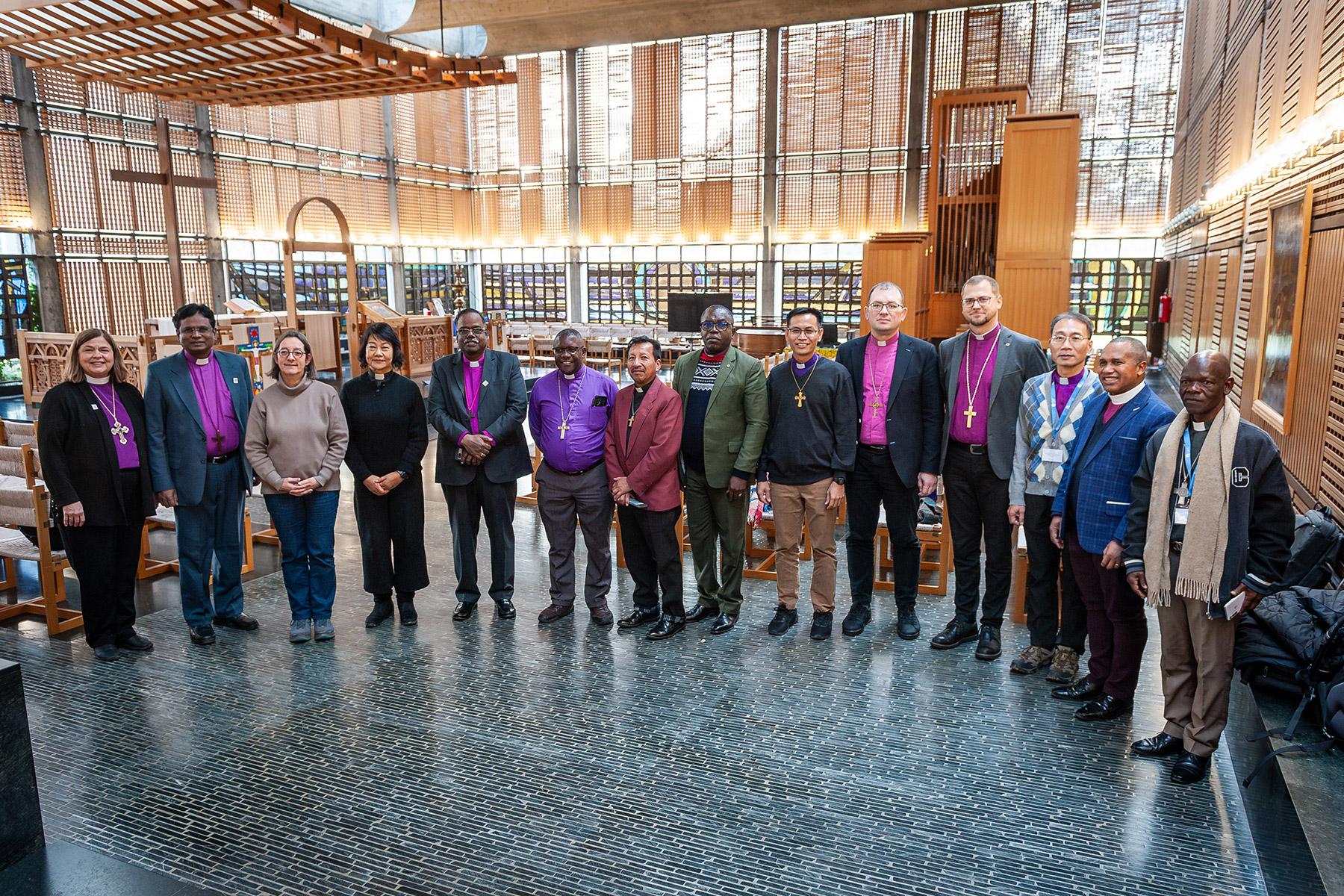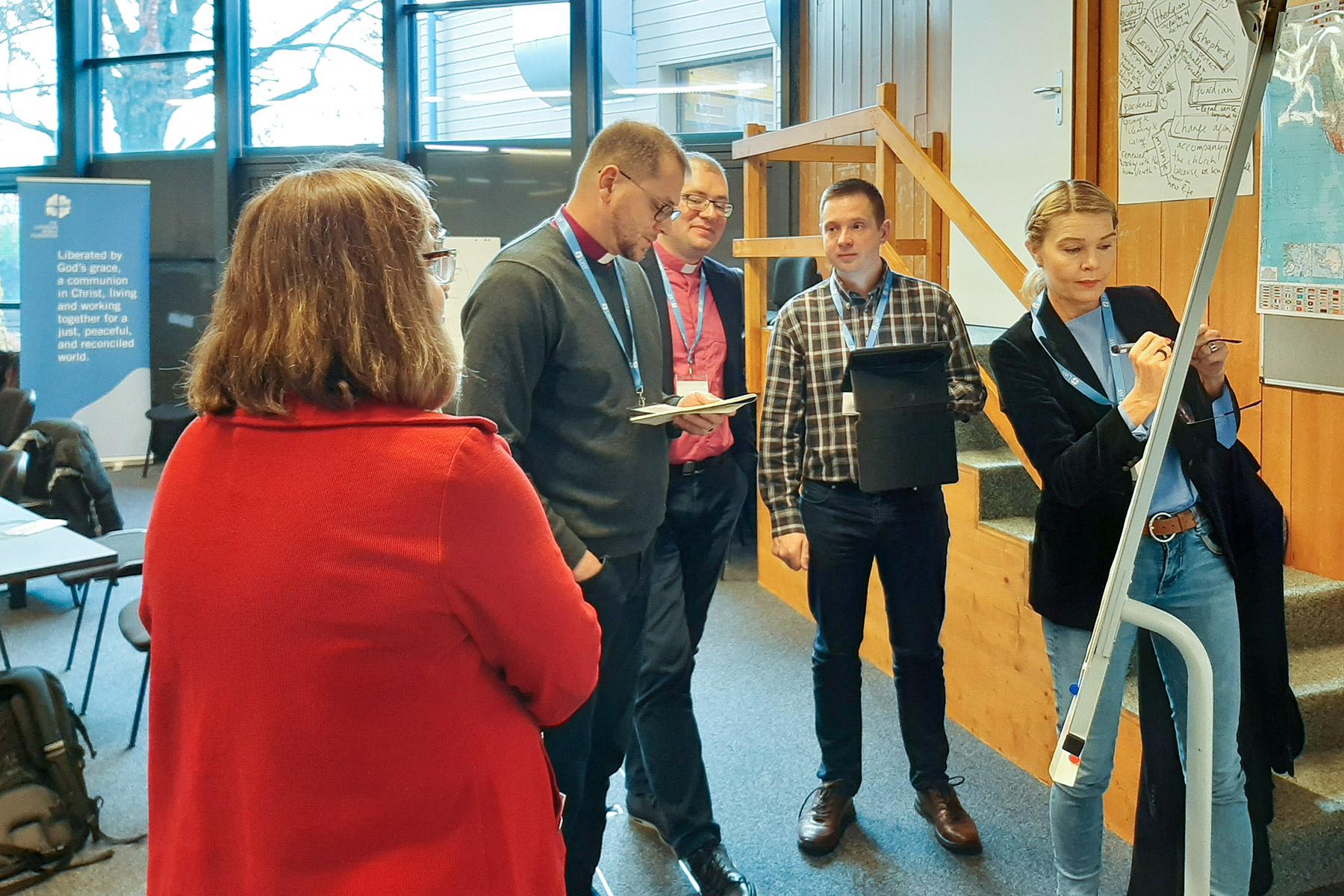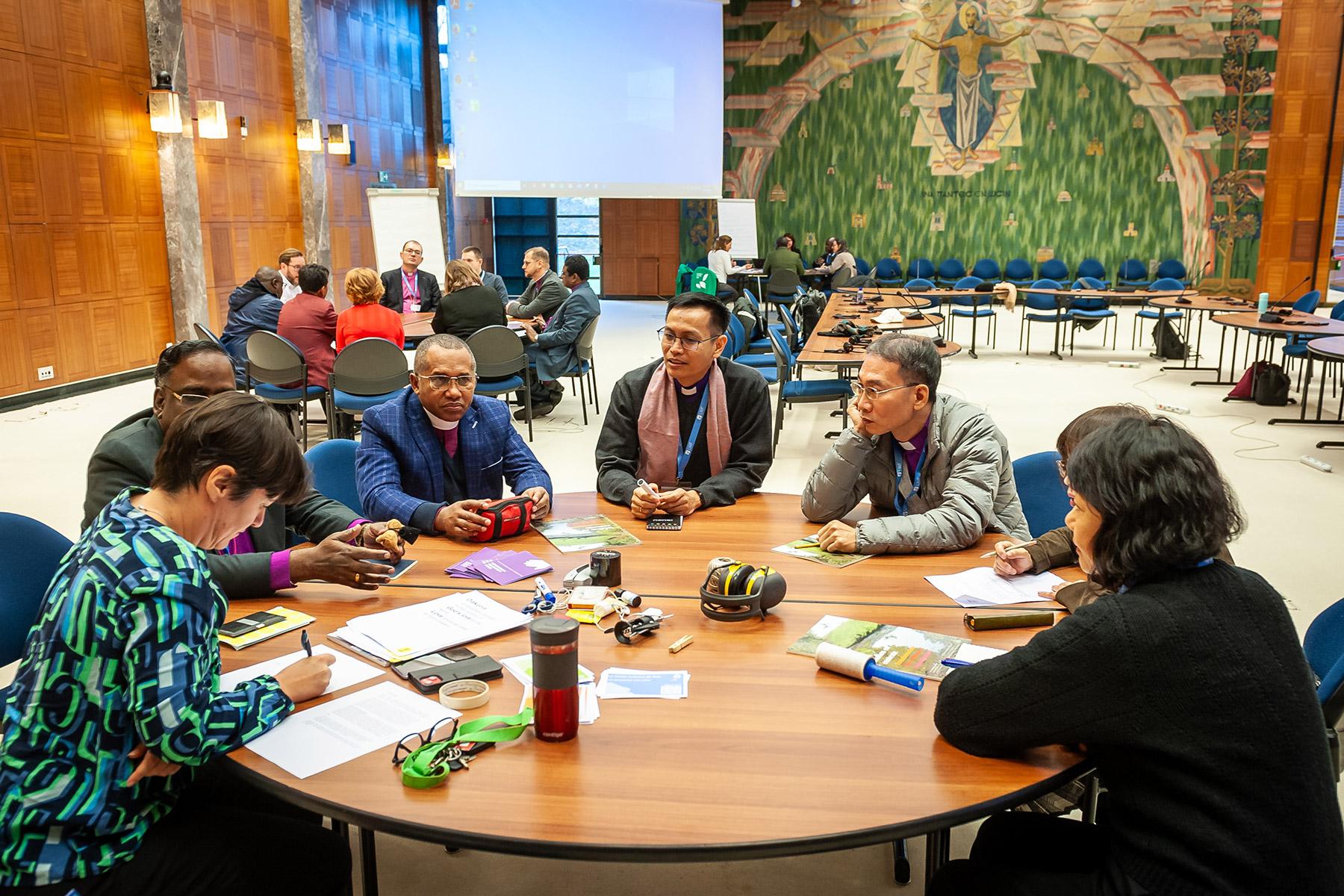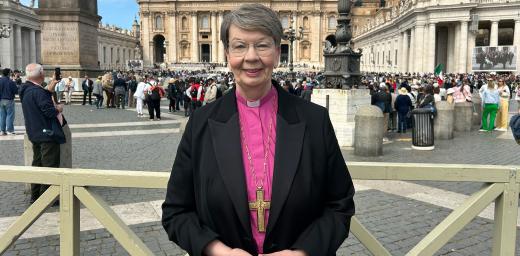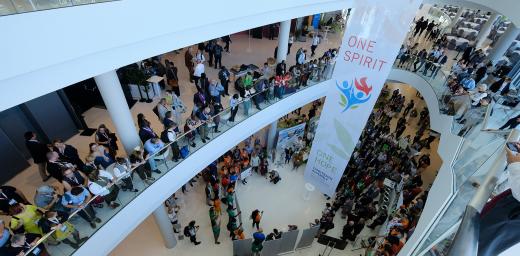Leadership: a call to serve and guide
(LWI) - What are the signs of hope among churches across the LWF? What challenges and opportunities do they face, and how do those in leadership deal with such concerns? Reflections around these questions preoccupied a group of 14 Bishops and Presidents of LWF member churches attending this year’s Retreat of Newly Elected Leaders (RONEL), 19-27 November.
Under the theme “Leadership and Episcopal Ministry in the LWF Communion,” they shared about their personal leadership journeys, heard about the different aspects of LWF’s work, and accompanied each other in spiritual renewal through daily prayer and worship. They met at the Bossey Ecumenical Institute and the LWF Communion Office in Geneva until 23 November, and the second part of the retreat continues at the LWF Center in Wittenberg, Germany.
Being church in minority contexts
The heads of churches highlighted challenges and opportunities in contexts where church members are growing rapidly or declining. In group discussions, they concurred that the presence and vibrant witness of a church should not be determined by its size, especially in countries where Christians and Lutherans are a minority. The impact of many LWF churches can be felt in their home communities. Yet, one shared concern is the shortage of ordained pastors, with some pastors assuming responsibility for up to six far-flung congregations.
“The reality is, many churches do not have enough pastors, and they lack capacity to strengthen theological education and the vocation of ordained pastors,” one participant noted. Programs for laity who are equipped to lead were discussed as an important approach to respond to this gap.
Japan Lutheran Church (JLC) Vice-President Rev. Yang Heemae highlighted the ecumenical opportunities for churches in a religious minority context compounded by declining church membership, an ageing population and youth disinterest in the church. With less than two percent of the Japanese population professing Christianity, forging ecumenical relations with other denominations including Anglicans and Catholics, has been particularly important for building unity among churches, she said.
“My heart is always for mission and church planting,” said Bishop Dr A. Christian Samraj, Tamil Evangelical Lutheran Church, India. He noted that despite existential challenges due to the Hindu government’s oppression of minority faith communities especially Christians, the church is growing, and it had ordained over 70 pastors in the last 10 months. The RONEL participants observed however, that many churches in similar contexts struggle daily with marginalization including lack of education and job opportunities and the fear that the church would “disappear” as its members are continuously threatened to leave.


